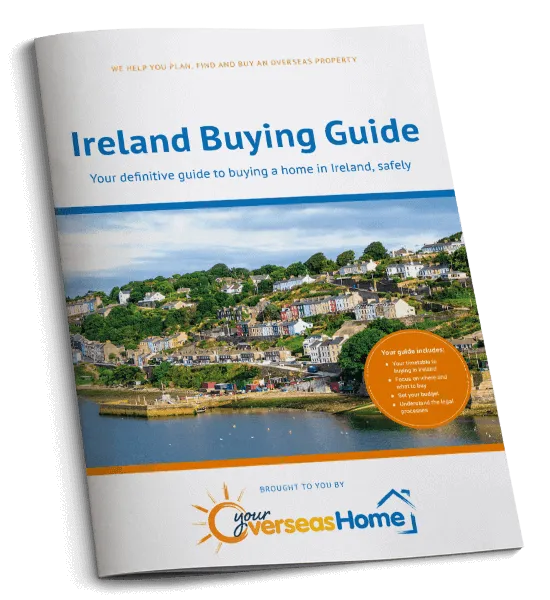Ireland is currently enjoying the lowest unemployment rate (6%) it has seen since the 2008 crash. This means you have a great chance of securing work when you make the move.
One of the reasons so many Brits make the leap is because there’s no language barrier. Also, currently it’s not necessary to secure a visa to allow you to work. It’s important to get clued up on how the job market works. This will make your search as pain-free and low stress as possible. For this reason, today we’re running through how to make a living in Ireland, which industries are rife with opportunity right now and where you should start looking for that dream role.
Ireland is currently enjoying the lowest unemployment rate (6%) it has seen since the 2008 crash.
Preparing for employment
Your first step should be to contact the relevant governing body in Ireland. They will inform you whether your qualifications are transferable or whether you will have to have them assessed. It will depend entirely on your industry. It’s possible you might have to take an exam or under-go further training in order to comply with Irish standards. As this can take a little time, the sooner you get the ball rolling on this the better. If you’re looking for work in a field that requires proof of qualifications, be prepared to provide a qualification certificate. You can source this via Qualifications Recognition Ireland. As a general rule, you can expect any degree secured in the UK to be equivalent to an Irish degree.

Google’s EU headquarters in Dublin (Laura Hutton / Shutterstock.com)
To become a paid employee, you need to apply for an Irish PPS (Personal Public Service) number. This is Ireland’s equivalent of a National Insurance Number. You need to be living in the country to apply and it allows employers to know how to tax you. The PPS card also gives you access to drivers’ licences, child immunisations, public health services, free travel and social welfare (if eligible). Your PPS comes in the form of a photo ID card. You will also need to set up an Irish bank account.
Where to look for work?
There are several avenues that you can opt for when searching for work in Ireland.Try reaching out to recruitment agencies that specialise in your sector. If your skills are deemed ‘in demand’, recruitment agents will actively want to speak to you and recruit you. Often recruiters want to see you’re actually living in the country before they spend time putting you up for roles. There are a huge number of recruitment agencies in Ireland. To ensure you’re choosing the best ones, have a look at the National Recruitment Federation website where those that meet specific criteria and industry standards are granted membership.
If you are ready to buy in Ireland, you’ll have a few financial matters to sort out. For advice on getting the best currency deal download the Property Buyer’s Guide to Currency.
If you have particular companies in mind that you’d like to work for, it’s worth searching for vacancies on their website, or by tracking down employees via social media networks liked LinkedIn and contacting them speculatively. People like to be asked for their guidance and advice – it makes them feel important! Ask people to meet for a coffee so that you can pick their brains on where to direct your search. You never know where that simple coffee might lead.
Another option is to search through the relevant Irish job websites. In addition to job listings, many of these websites offer useful pointers for tailoring your CV to the Irish market. Some good options as a starter for ten include, Irish Times, Jobs in Ireland, Headhunt International and Career Jet. There are also industry specific job listings websites, i.e. Jackie Brown Medical and Hook Head (I.T). So do bear that in mind when you commence your search.
Which sectors are in high demand?
There are a number of sectors where skilled employees are very much in demand. When it comes to the financial industry, opportunities are promising due to the boom lead by foreign and home investment. Accountants, financial services, Fintech and telecommunications are all looking very positive for the rest of 2018 and beyond. The pharmaceutical industry is another big employer. Particularly around Dublin, with companies like Pfizer and Aerie Pharmaceuticals offering exciting roles and high salaries. No company can really function without the help of Human Resources professionals, and the industry is set to boom in 2018. All sectors are actively trying to recruit and retain high quality HR professionals. So if you have good experience and the right know-how, you should be able to secure an exciting, well paid position.
When it comes to the financial industry, opportunities are on the up due to the boom lead by foreign and home investment.
Over the course of 2016 and 2017, we saw many international companies relocating their headquarters to Ireland. They made this move to stay within Europe once Brexit is complete. This has led to a rise in jobs involving different European languages and a rise in tech roles. If you have programming skills, you’ll be moving to the right place. You’ll be able to secure permanent or contract work across the country at a highly competitive rate. Additionally, all companies need talent to shout about them. Therefore, marketing and PR roles are out there in abundance too, whether that’s with international companies, SMEs, start-ups, or more established financial and pharma companies.
What about part-time work in rural locations?
If you’re moving to Ireland to enjoy a slower pace of life, chances are you won’t want to be in a city. So where on earth do you find work in more rural locations? Do you have any skills that you can flog online on a part-time basis, for example book keeping, freelance writing and editing, being a virtual assistant or travel agent? As long as you have access to the Internet, you should be able to source work online.
Perhaps you have a trade, or you’d like to find work in a local bar or restaurant? The best way to find work in smaller locations is to go and introduce yourself to people. Let them know that you’re new in town and that you’re on the hunt for work. Local folk will know whose looking for a little extra help on the farm, or which families are badly in need of a baby sitter or dog walker. Until you ask, you won’t know what job opportunities are out there! Keep an eye out in local papers and noticeboards around town. Make up some flyers to flog your wares or considering popping an ad in a local paper.
Which companies are the best places to work in Ireland?
According to the findings of a recent study conducted by job search website, Indeed, Dell is the best place to work in Ireland. Indeed conducted their ‘2018 Top 25 Best Places to Work in Ireland’ study using employee reviews posted on their website. The rest of the top five is made up of Apple in second place, followed by Comfort Keepers – a healthcare company for the elderly, Next Plc and Google. One of the best performing sectors was retail with Next, Boots, Spar, Supervalu and McDonald’s all appearing on the list.
If you’re making the move, you should speak to a currency and payments specialist about how to get money sent to you in Ireland. We recommend Smart, ranked highest on Trustpilot for money transfer and currency exchange.
Paul Wolfe, Senior Vice President of Indeed, revealed that employers are really having to up their game to keep employees happy and to secure the very best candidates as the Irish economy nears full employment. He stated: “Companies have recognised for some time that there is more to employee satisfaction than remuneration. While attractive perks and flexible working conditions are often associated with the arrival of US tech names in the Irish market, this year’s rankings show that investment in people is being prioritised right across a range of sectors, from retail to technology and from healthcare to hospitality.” Perks, high pay? This certainly sounds like good news to us!






